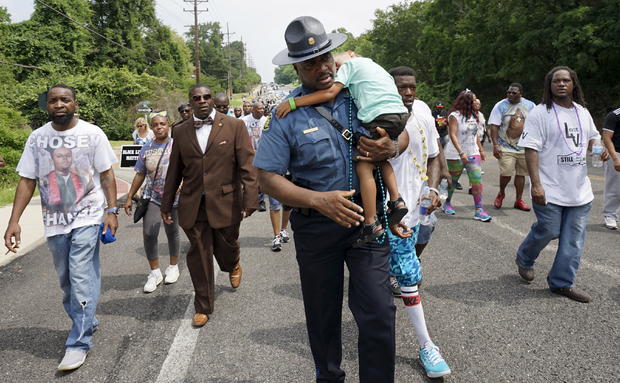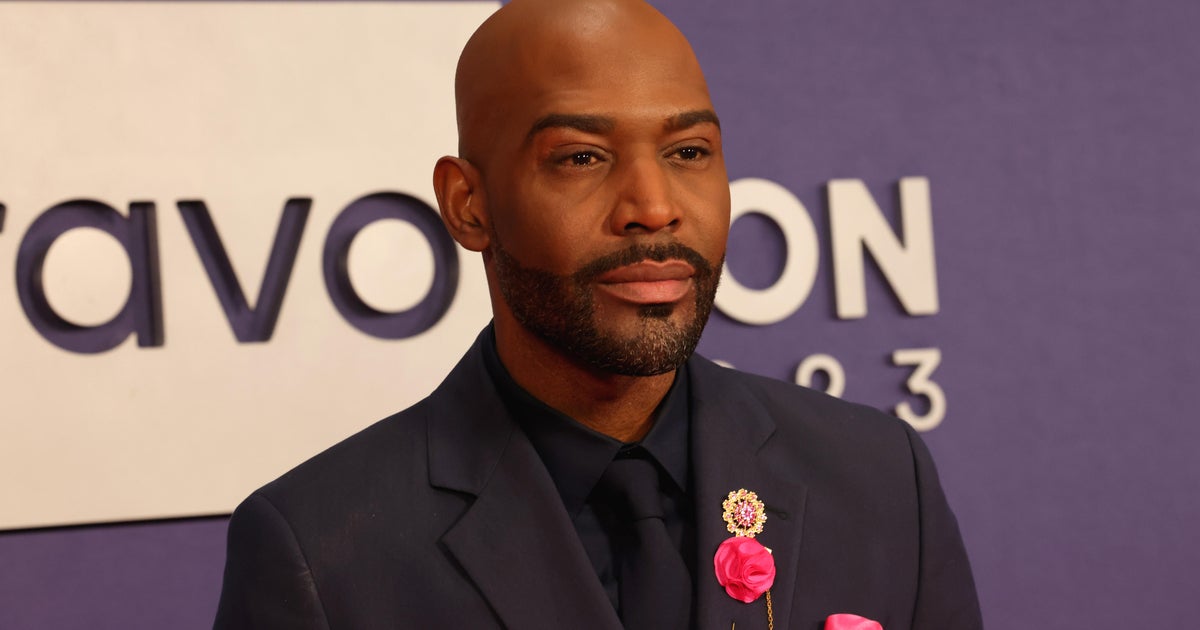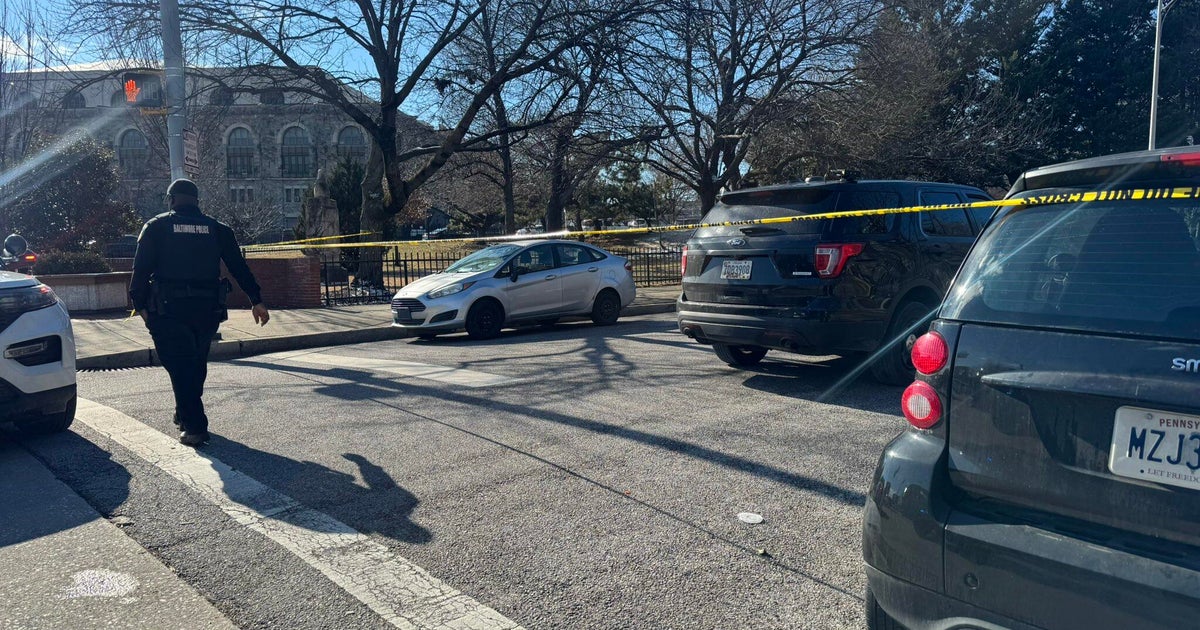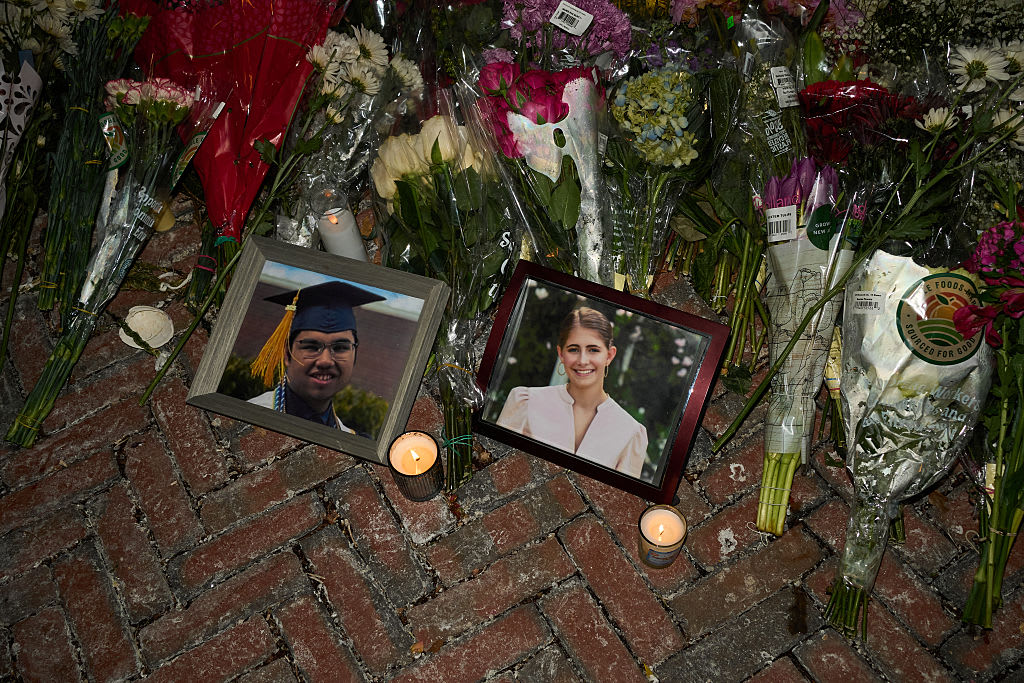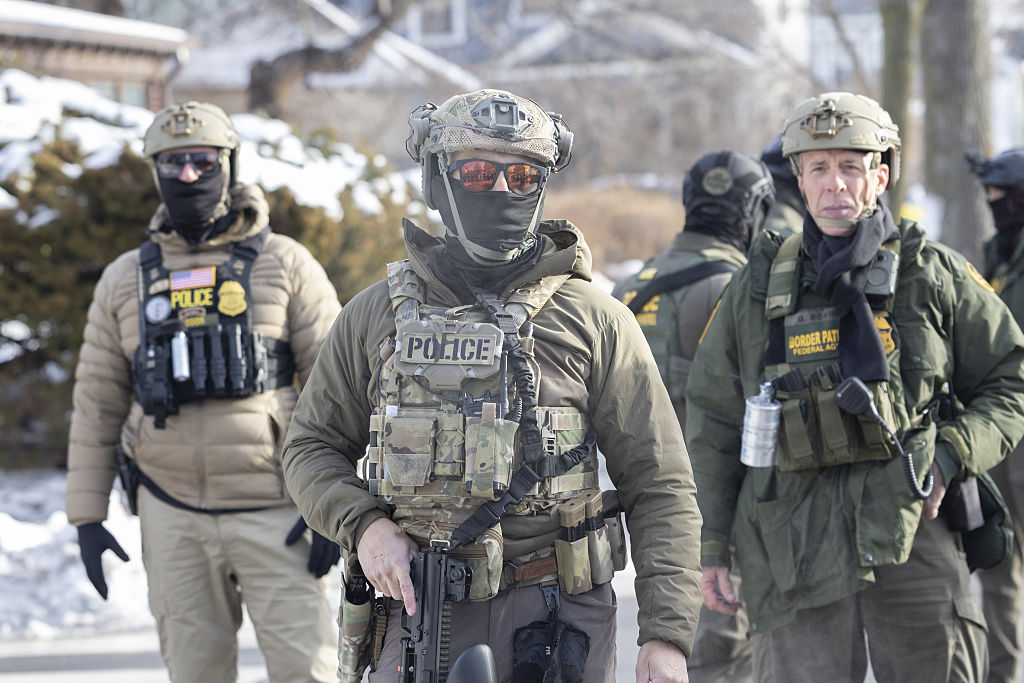Retired Missouri police captain says Michael Brown's death in Ferguson "changed me as a person"
Ten years ago, the fatal police shooting of Michael Brown, Jr., an 18-year-old Black man, in Ferguson, Missouri, sparked tense protests and unrest. Brown's death helped fuel the national debate about policing and race.
Missouri State Highway Patrol Capt. Ron Johnson was in charge of leading law enforcement efforts to stop violence and keep the peace in Ferguson after the deadly Aug. 9, 2014, shooting.
"I think that the partnership between law enforcement and the leadership of this community continue to come together to not allow the agitators and that criminal element to define the protests," Johnson told CBS News' Vladimir Duthiers in 2014 after days of demonstrations.
In a new CBS special, "13 DAYS IN FERGUSON," the now-retired police captain reunites with his longtime friend Cedric the Entertainer, who grew up near Ferguson, to memorialize Brown and reflect on the aftermath of the police shooting. Watch the special on Friday, Aug. 9 at 10 p.m. ET on CBS or stream it on Paramount+.
Reliving Ferguson a decade later
"Some of our lives have purpose as we walk this Earth, and some of our lives have purpose when we're not here," said Johnson as he and Cedric the Entertainer read a plaque in Brown's honor. The moving moment was featured in the CBS documentary.
Johnson told "CBS Mornings" on Friday that visiting Brown's memorial and other notable scenes made him relive those days in Ferguson.
"Going back was reliving it all over. It was like it hadn't been 10 years. It was kind of like getting up that first morning and going out to the scene in Ferguson. So it's changed my life. It's changed me as a person, and it's made me better," Johnson said.
A decade later, Johnson believes Brown's death continues to be a catalyst for change but said there still needs to be more progress on improving police and community relations.
"I think we've made some steps and we've gotten better, but we still have a ways to go. We still see things in our country that exist today and still happen today, so we've got a ways to go but we've gotten better," Johnson added.
In the documentary, Johnson sits down with Michael Brown, Sr. for the first time. Reflecting on his time as Ferguson's security chief, Johnson said his first initiative as a leader should have been offering his condolences to Brown's parents.
"It is one of my biggest regrets," said Johnson, adding that he has had to learn to forgive himself for not speaking to Brown's parents earlier.
The face of Ferguson police
Johnson, who had close ties to the Ferguson community, knew that he would be responsible for helping ensure the protests remained peaceful following the fatal 2014 shooting. But he wasn't expecting to be the face of Ferguson's law enforcement at the time.
"Never did a dream that I would be put in charge of Ferguson that day," Johnson told "CBS Mornings" co-anchor Gayle King, adding that he never questioned "Why me?"
It was a bumpy road for Johnson, who represented the police but also wanted to march alongside protesters at the same time.
"Then you start asking yourself, 'What is your place? Who are you? Has this uniform made you who you thought you were — or was it the color of your skin?" Johnson explained.
He was seen marching with protesters, listening to their concerns and even hugging some of them while leading law enforcement efforts. In a 2014 interview, Johnson told Duthiers that he had no fear and he believed they were heading toward peace.
"A lot of the people that were on the streets of Ferguson looked like me. I can't fear myself, and so that was the attitude that I took. I see myself in many of these people that are walking the streets…and many of them I've known," Johnson said.
